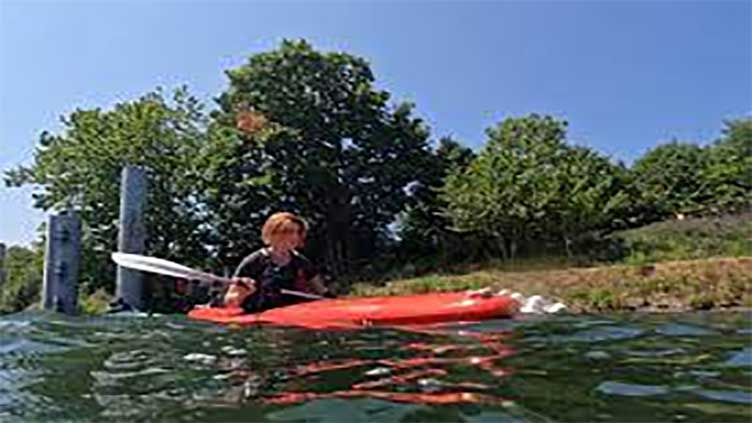For its 2024 Olympics, Paris wants the Seine river swimmable

Sports
For its 2024 Olympics, Paris wants the Seine river swimmable
PARIS (Reuters) - On a sunny spring day, Dan Angelescu was testing the water quality of Paris' Seine river by the bridge Alexander III - a scenic view for next year's swimming marathon and triathlon Olympic trials.
Angelescu has been working for the city since 2017 on its longtime project to make the Seine swimmable. The 2024 Games are a good opportunity to fast-track it in order to host some sporting events in the famous river - as was done at the first Paris Olympics of 1900.
"It's an ambitious objective, and nobody knows how the Olympic Games will be, whether the water quality will be good enough or not," Angelescu said, adding that it was "realistic", and that the city was putting in the effort required.
That day, concentration levels for two bacteria, E.coli and Enterococcus, both indicators of fecal material in the water, were low enough to safely bathe in the river according to Angelescu. The challenge is to maintain those levels.
The main risk comes from storms. When rainwater pours into the Parisian sewage system it can overflow and the extra water is then discharged in the river, polluting it with toxic bacteria.
To avoid this happening next summer, the city is building a massive underground basin in the south of Paris, with a 50,000 cubic metres capacity - about the equivalent of 20 Olympic pools. The Austerlitz basin will collect rainfall to avoid the overflow, said Pierre Rabadan, deputy mayor in charge of the Games' organization.
"If there were torrential rain for several days, we could have a water quality problem," Rabadan said, but added he was confident the basin would prevent that from happening.
[1/4] Annaick, a kayaker who is a member of the Club du Bac canoe-kayak, practices kayaking on the Seine River in Sevres, near Paris, France, June 3, 2023.REUTERS/Manuel Ausloos
SYSTEM UPGRADE
Another part of the plan is to complete the switch of some homes upstream from an antiquated set-up discharging wastewater into the river to a brand new connection to the sewer system.
Stephane Vidalie, who lives in Neuilly-Plaisance in the east of Paris, was happy to no longer send wastewater into the Marne river, a tributary that joins the Seine just outside Paris.
"As a citizen, it's important to know you don't take part in polluting waterways," said Vidalie. "Now it goes to treatment plants, as it should have for a long time."
Paris hopes to reap the benefits beyond the Olympics. Colombe Brossel, another deputy mayor in charge of public space and waste reduction, said the main goal was for people along the Seine to be able to swim in it by 2025, as an Olympics "inheritance".

